Pork liver: calories and nutritional value
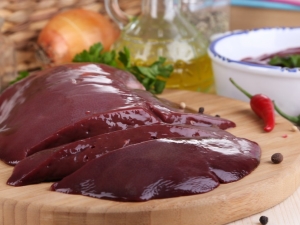
Pork liver is a popular culinary product. Many independent dishes are prepared from it, and are also used as an ingredient for other dishes.
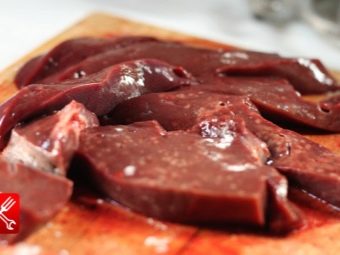

What does it consist of?
Nutritionists have found that this product is quite useful for the human body, as it contains a large amount of essential vitamins and minerals. In particular, in the composition of the liver, you will find B vitamins, as well as vitamins A and C. These vitamins positively affect the functioning of the nervous and digestive systems, are involved in cell growth, support emotional health and strengthen immunity. The product contains such important macro- and microelements as calcium and potassium, magnesium and zinc, iodine and sulfur, iron, copper, manganese. In this way, pork liver provides the body's needs for many useful components.

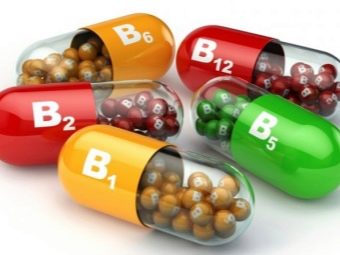
Energy value and KBJU
It is believed that 109 kcal per 100 grams of raw fresh pork liver. The BJU of the product is as follows:
- 18.8 g proteins;
- 3.8 g carbohydrates;
- 4.7 g fat.
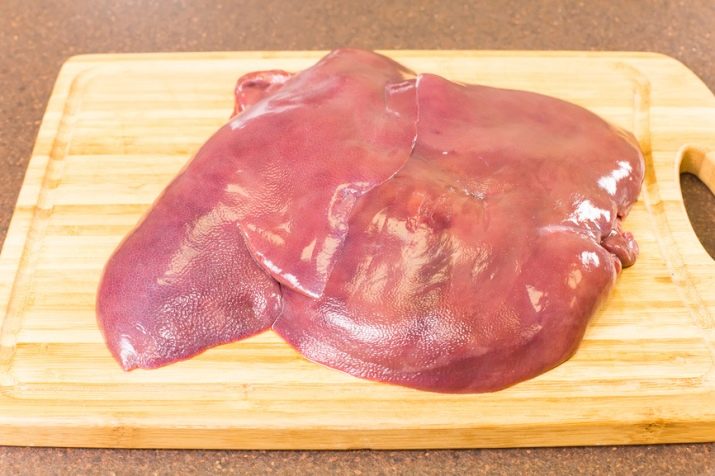
In addition, the product contains 71.3 g of water, 1.4 g of ash, 1.2 g of fatty acids and 130 mg of cholesterol. As for the fried pork liver, its calorie content increases compared to the raw product. There are 200 kilocalories per 100 g of fried food. And a little more than 106 calories in this case falls on fats, 65 on proteins, and 30 on carbohydrates. Of course, boiled and stewed liver have a lower calorie content (this is due to the method of preparation of the product).There are about 150 kcal per 100 g of stewed liver, and 100 g of boiled liver will have only 120.
Thus, the liver, regardless of the method of its preparation, is a useful dietary product. But at the same time, it is worth remembering that if you are on a strict diet and trying to lose weight, then you should not abuse the fried product - give preference to stewed or boiled liver.
And also the product prepared in the last two ways is useful for children.

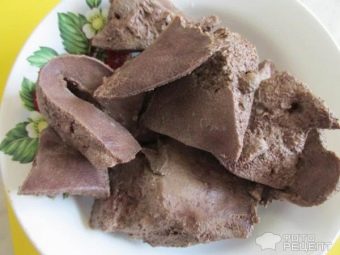
Useful and harmful properties
Like any other product, pork liver has a number of characteristics. Some of them can have a positive effect on the human body, while others, on the contrary, have a negative effect. The positive properties of pork liver include the fact that the vitamins contained in it regulate the proper functioning of the human nervous system. In addition, the liver can be consumed by almost everyone, because it contains a very small amount of fat.
Another plus is glucocorticoids - special components contained in the product and helping a person to more easily endure any inflammatory processes. Doctors recommend using the liver for pregnant women, the elderly, children and those who suffer from anemia, iron deficiency and low blood hemoglobin.

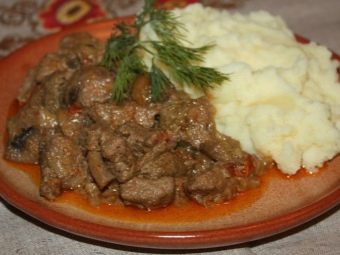
Despite the variety of positive effects, eating pork liver can also lead to detrimental consequences. It is not recommended to use the product for people who have high cholesterol levels in the blood. It is also important to note that pork liver should not become a permanent element of your diet.Its systematic and unlimited consumption leads to the accumulation of uric acid in the body, which can subsequently cause the development of gout. Among other things, it should be taken into account that only the liver that is obtained from healthy animals can be eaten. That's why it is important to check not only the expiration date on the packaging when buying a product, but also make sure that the seller has the necessary licenses and certificates.
Pork liver can be an excellent product in your diet, if you take into account all the distinctive characteristics and features of the product. You can cook a wide variety of tasty and healthy independent dishes from it (for example, fry the liver with onions and sour cream) or add it as one of the components to snacks and salads.
Do not be afraid to experiment and surprise your household.

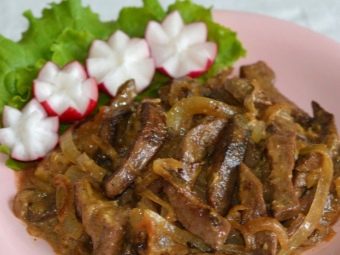
How to cook pork liver with onions, see the following video.

















